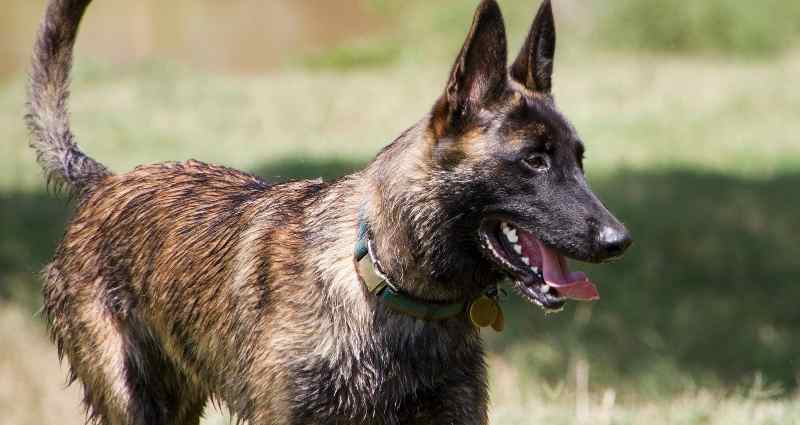What Sets Working Dog Breeds Apart?
Table of Contents
Character traits in working dogs vary widely. Some working dog breeds are bred specifically for their unique abilities, such as herding, hunting and service abilities. Other working dog breeds were originally bred for a specific purpose, such as guarding property or being loyal companions, but have been adapted over time to work in other capacities.
Regardless of their breed or original purpose, working dogs share certain personality traits that make them good at their jobs.
Working dogs are typically very focused and driven. They have a single-minded purpose to complete their task and make their owner or trainer happy. They are also bred for temperament, meaning they are generally calm and confident, even in difficult or stressful situations. This makes working dogs less likely to become distracted or spooked, which can be dangerous in working environments.
Smart and Trainable
Working dogs are intelligent animals and quick learners which allows them to be successful in working environments. Their intelligence also makes working dogs good companions, as they can be taught a variety of tricks and commands.
In addition to their focus and temperament, working dogs often require a high level of obedience training. They are willing to listen and take direction from their handlers, which is important in order to successfully complete tasks. Working dog breeds vary in size, shape, and color, but they all share these common personality traits that make them good at their jobs.
Strong & Powerful Breeds
Working dog breeds are strong and powerful animals that can be very successful in working environments. They are able to perform tasks efficiently and without distraction, thanks to their focus and temperament. Their intelligence and obedience training also make them good companions, as they can be taught a variety of tricks and commands.
An Independent Streak
Working dogs often have an independent streak, which can lead them to becoming distracted or refusing to listen to commands from their handler. In some cases, this can put the working dog and those around them in danger.
Working dog owners and handlers need to be prepared for this possibility and know how to handle a disobedient working dog. In most cases, it is best to remain calm and assertive when dealing with a disobedient working dog. Giving clear commands and ensuring that the working dog understands what is being asked of them is also important. Positive reinforcement is often the best way to get a working dog to obey a command, as they respond well to rewards such as treats or praise
Strong & Powerful
Most working dog breeds are large dogs, which makes them well-suited for working environments. They are strong and powerful animals that can be very successful in completing tasks. In addition, their intelligence and obedience training make them good companions, as they can be taught a variety of tricks and commands.
Working dogs often require extensive training in order to be successful in working environments. Their obedience training must be kept up to date, as working dogs can become distracted or disobedient if they are not properly trained.
Understanding Unique Character Traits In Working Dogs
In some cases, working dogs can be dangerous if they are not properly handled. It is important for working dog owners and handlers to be prepared for any situation and know how to handle a disobedient working dog.
- Working dogs activities include herding, hunting, tracking, retrieving, agility, and obedience. They are valuable canine partners in in law enforcement, in the military, on farms and as service animals.
- Working dogs in the military are used for: search and rescue missions, detection of explosives and drugs, and providing emotional support to soldiers.
- Working dogs in law enforcement are used for: detecting illegal drugs and explosives, tracking criminals, cadaver dogs and apprehending suspects.
- Working dogs as service animals provide assistance to people with disabilities by performing tasks such as: retrieving objects, opening doors, barking to alert their owner of danger, and providing physical support.
Working dogs have many abilities and can be used for a variety of purposes. The unique character traits in working dogs ensure they are loyal and focused, making them perfect for working in a variety of environments. Their obedience training also ensures that they will be successful in completing any task they are given. Thanks to their breed, temperament, and training, working dogs are some of the best all-around employees out there!



